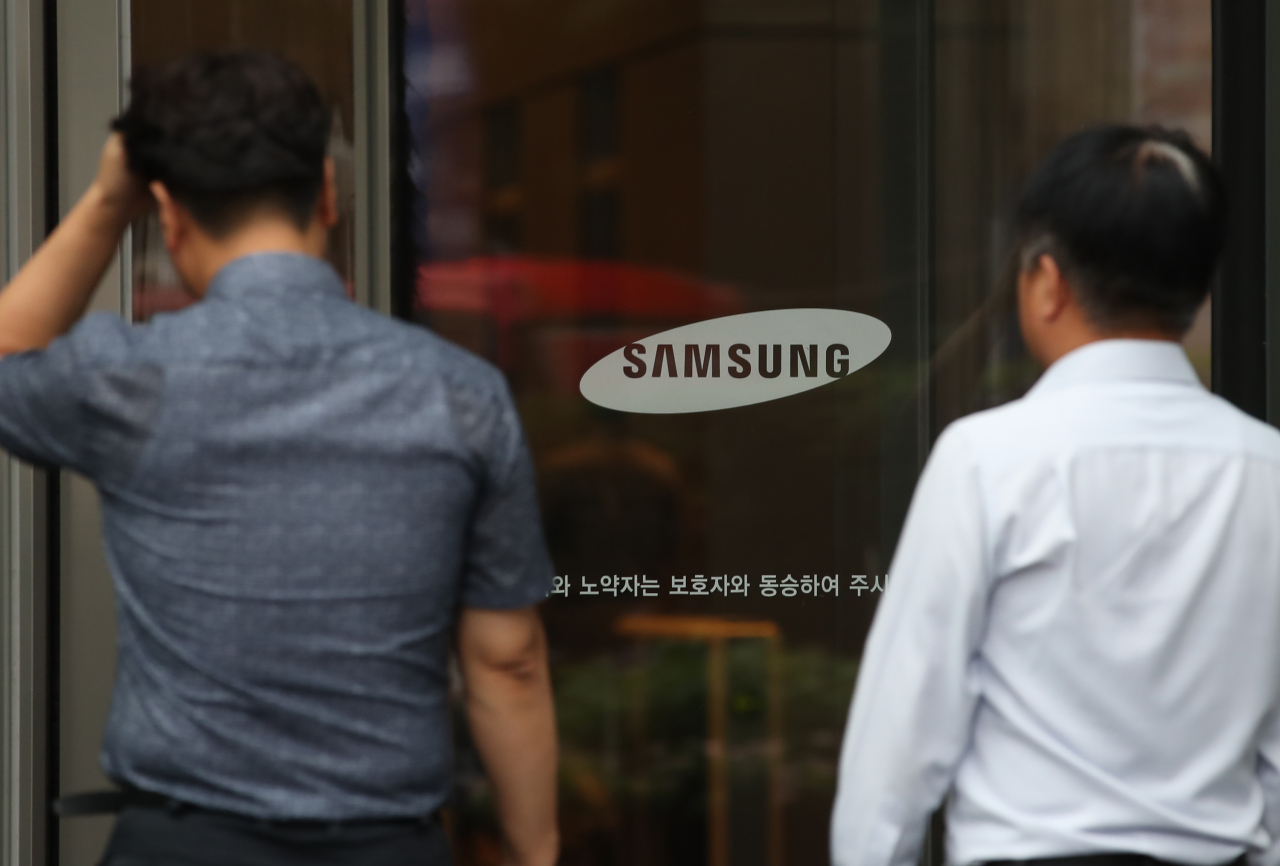Samsung Electronics’ operating profits halved in the second quarter on weak chip prices and poor mobile sales, but it is expected to face even more challenges in the second half of the year due to increased uncertainties over trade disputes and the nearing trial to determine the fate of its de facto leader.
The South Korean IT giant’s sales slid 4 percent to 56.1 trillion won ($47.4 billion), but its operating profits plunged 55.6 percent on-year to 6.59 trillion won over lower memory chip prices and slowing sales of mobile phones.
 |
Samsung Electronics’ headquarters in Seocho-gu, Seoul (Yonhap) |
The second-quarter earnings report is slightly higher than market expectations of 6 trillion won, but Samsung is likely to be caught in a fog of uncertainties in the second half due to external and internal risks.
Intensifying volatility in the memory chip market fueled by Japan’s trade restrictions on key materials for semiconductor fabrication and the possibility of Tokyo keeping its hostile stance indefinitely is the biggest threat facing Samsung.
During a conference call, officials said the company is facing the burden of the new approvals process due to Japan’s export curbs, but what concerns Samsung more is Japan’s expected decision to exclude South Korea from the whitelist of trusted export countries Friday. That could lead to Japan toughening export restrictions on more materials and equipment crucial for chip fabrications.
Samsung relies on Japanese companies for about 80-90 percent of its equipment for chip production. If the import of equipment is delayed, Samsung may have to put the brakes on operations of its new production lines planned in Hwaseong and Pyeongtaek in Gyeonggi Province as well as Xian, China.
With the world’s largest memory chip producer facing unprecedented crisis, its global competitors, namely TSMC and Intel, are reportedly planning massive investment to break Samsung’s dominance in the market. Samsung provides more than 40 percent of memory chips in the world.
Despite concerns, Samsung said it is not considering reducing wafer input, and that it would “flexibly” manage memory chip production accordingly to demand changes.
On concerns of possible delays in its new production line, the company said it expects to start operating tis EUV chip production line in Hwaseong in first half of 2020.
Meanwhile, Samsung Electronics Vice Chairman Lee Jae-yong is facing a final ruling from the Supreme Court on charges of bribing former President Park Geun-hye and her confidante Choi Sun-sil in exchange for clearing hurdles over his succession. The court is expected to deliver the final verdict on Lee in the third week of August. Lee has already served one year in prison.
Along with the Moon Jae-in government’s continued work on chaebol reform, the prosecution is adding more pressure on Samsung BioLogics on suspicions of accounting fraud in connection to Lee’s succession scenario. The prosecution is likely to resume its investigation on Samsung’s biosimilar production unit after forming a new team on August as well.
Faced with a series of negativities, Samsung is likely to report 226 trillion won of revenue with around 26 trillion won in operating profits this year. The operating profits estimate is less than half of last year, when the tech giant reaped record-high profits, according to local brokerage houses.
By Cho Chung-un (
christory@heraldcorp.com)








